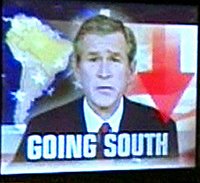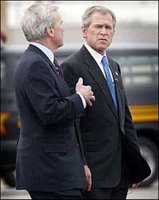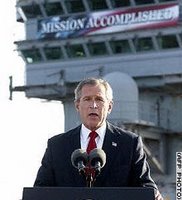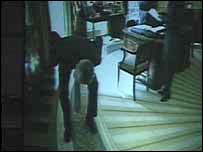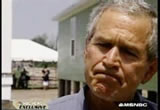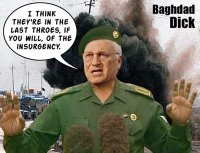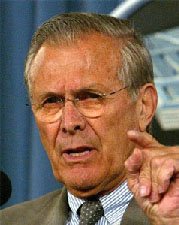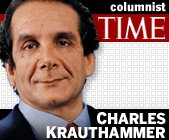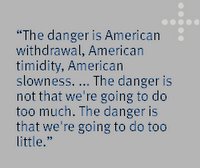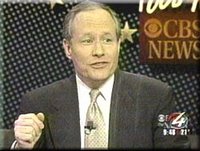 Matthew Alexander (a pseudonym) is a former senior military interrogator and author of How to Break a Terrorist: The U.S. Interrogators Who Used Brains, Not Brutality, to Take Down the Deadliest Man in Iraq. He led an elite interrogation team in Iraq that located Abu Musab Al Zarqawi, the former Al Qaida leader, who was killed in a subsequent airstrike. He has conducted more than 300 interrogations and supervised more than 1,000. Alexander has served for 17 years in the Air Force and Air Force Reserves. He is currently a Fellow at the Open Society Institute. When Bush made the comment while speaking to the Economic Club of Grand Rapids, Mich. (June 2nd, 2010) that,
Matthew Alexander (a pseudonym) is a former senior military interrogator and author of How to Break a Terrorist: The U.S. Interrogators Who Used Brains, Not Brutality, to Take Down the Deadliest Man in Iraq. He led an elite interrogation team in Iraq that located Abu Musab Al Zarqawi, the former Al Qaida leader, who was killed in a subsequent airstrike. He has conducted more than 300 interrogations and supervised more than 1,000. Alexander has served for 17 years in the Air Force and Air Force Reserves. He is currently a Fellow at the Open Society Institute. When Bush made the comment while speaking to the Economic Club of Grand Rapids, Mich. (June 2nd, 2010) that, "Yeah, we waterboarded Khalid Sheikh Mohammed... I'd do it again to save lives,"
Matthew Alexander responded that Bush's statement
 is de facto approval of the deaths of hundreds, if not thousands, of American soldiers in Iraq who were killed by foreign fighters that Al Qaida recruited based on the President's policy of torture and abuse of detainees.
is de facto approval of the deaths of hundreds, if not thousands, of American soldiers in Iraq who were killed by foreign fighters that Al Qaida recruited based on the President's policy of torture and abuse of detainees.
At least now we know where the blame for those soldiers' deaths squarely belongs. President Bush's decision broke with a military tradition dating back to General George Washington during the Revolutionary War and the consequences are clear: Al Qaida is stronger and our country is less safe.
 Matthew Alexander (a pseudonym) is a former senior military interrogator and author of How to Break a Terrorist: The U.S. Interrogators Who Used Brains, Not Brutality, to Take Down the Deadliest Man in Iraq. He led an elite interrogation team in Iraq that located Abu Musab Al Zarqawi, the former Al Qaida leader, who was killed in a subsequent airstrike. He has conducted more than 300 interrogations and supervised more than 1,000. Alexander has served for 17 years in the Air Force and Air Force Reserves. He is currently a Fellow at the Open Society Institute. When Bush made the comment while speaking to the Economic Club of Grand Rapids, Mich. (June 2nd, 2010) that, "Yeah, we waterboarded Khalid Sheikh Mohammed... I'd do it again to save lives," Matthew Alexander responded that Bush's statement
Matthew Alexander (a pseudonym) is a former senior military interrogator and author of How to Break a Terrorist: The U.S. Interrogators Who Used Brains, Not Brutality, to Take Down the Deadliest Man in Iraq. He led an elite interrogation team in Iraq that located Abu Musab Al Zarqawi, the former Al Qaida leader, who was killed in a subsequent airstrike. He has conducted more than 300 interrogations and supervised more than 1,000. Alexander has served for 17 years in the Air Force and Air Force Reserves. He is currently a Fellow at the Open Society Institute. When Bush made the comment while speaking to the Economic Club of Grand Rapids, Mich. (June 2nd, 2010) that, "Yeah, we waterboarded Khalid Sheikh Mohammed... I'd do it again to save lives," Matthew Alexander responded that Bush's statement is de facto approval of the deaths of hundreds, if not thousands, of American soldiers in Iraq who were killed by foreign fighters that Al Qaida recruited based on the President's policy of torture and abuse of detainees.



